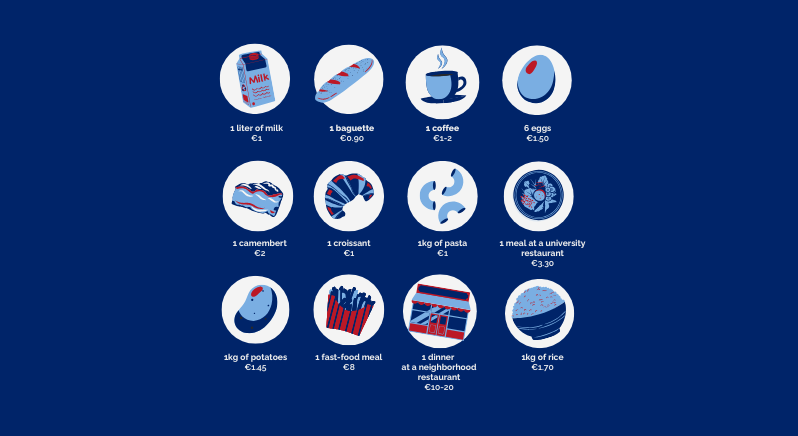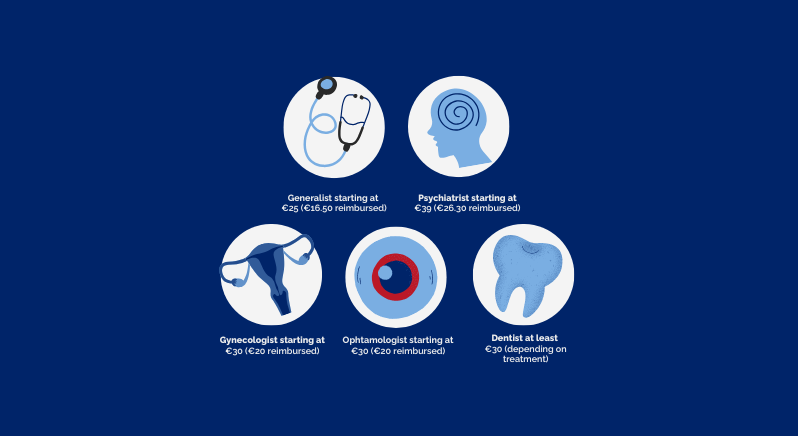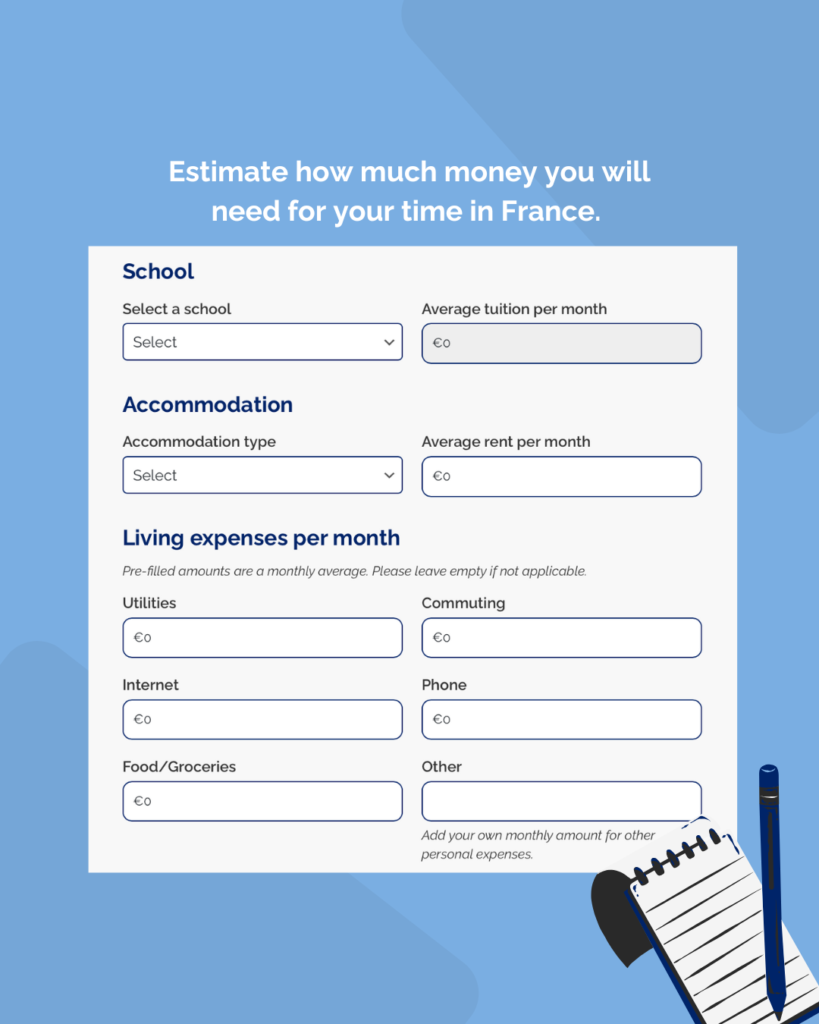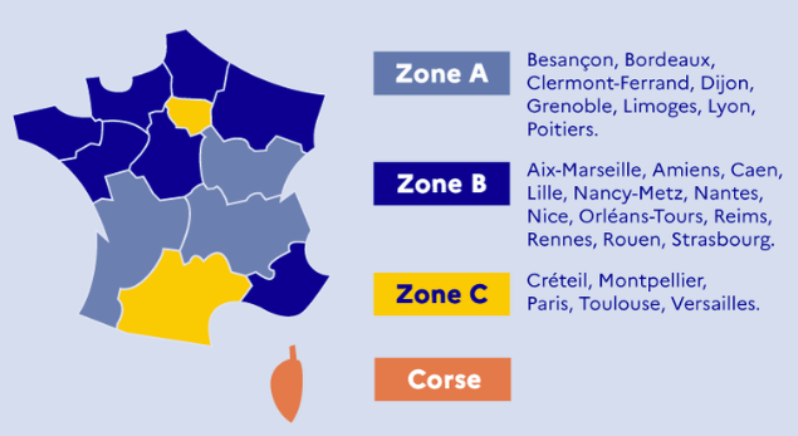Planning your budget for a year in France is essential for a smooth and stress-free student experience. From tuition fees to daily living costs, careful financial planning will help you make the most of your time in France.
This guide breaks down key expenses and money-saving tips to help you keep your budget under control.
Tuition
The most significant expense for students is tuition. France offers a range of institutions, from public universities to private schools, each with different fee structures.
- Public universities: For non-EU students, tuition fees at public universities are approximately €2,770 per year for a bachelor’s program and €3,770 per year for a master’s program.
- Private schools: Tuition fees vary widely, ranging from €3,000 to over €20,000 per year, depending on the course and the university’s reputation.
Accommodation
Housing is the second major expense for students. The costs vary significantly depending on the city and type of accommodation:
- Paris: A one-bedroom apartment typically costs around €1,100 per month.
- Large cities: You may find accommodations between €500 to €900 per month.
- Smaller cities: You may find accommodations for as little as €500 per month.
See how we make accommodation booking easier for you here: https://gogofrance.com/en/blog/how-we-make-accommodation-booking-easier/
Groceries
Expect to spend around €150 to €250 per month on groceries. Shopping at local markets and discount supermarkets can help keep expenses low.
Here are some average prices for common grocery items:
- 1 baguette: €0.90
- 1 coffee: €1-2
- 1 camembert: €2
- 1 croissant: €1
- 1 kg of pasta: €1
- 1 kg of potatoes: €1.45
- 1 kg of rice: €1.70
- 1 liter of milk: €1
- 6 eggs: €1.50

Transportation
Public transportation in France is efficient and cost-effective. A monthly pass costs €20–€40 in smaller cities, around €30–€60 in larger cities, and €75 in Paris.
Many cities offer student discounts, so be sure to inquire about these options.
Health insurance
Health insurance is mandatory in France. Long-term students are automatically enrolled in the French social security system, which covers most health expenses. However, additional private insurance is recommended, costing around €20 to €50 per month.

Miscellaneous
Set aside €100 to €200 per month for essentials like books, clothing, personal care, and leisure activities.
Museums, theaters, and cinemas frequently provide student discounts, allowing access to a wide range of cultural activities at reduced prices. Additionally, many historical sites offer free entry days specifically for students.
How to keep your budget under control
Here are some practical tips that can directly impact your overall budget and help you manage your expenses effectively:
- Accommodation: Consider renting a room in a shared house or student residence to reduce costs. You may also be eligible for housing aid from the CAF.
- Food: Cooking at home is significantly more cost-effective than dining out or ordering takeout.
- Transportation: Always inquire about student discounts or student commuter passes, and consider purchasing a second-hand bicycle to save on transportation costs.
While reducing your expenses is important, you can also increase your income to help balance your budget. As a student, you are permitted to work up to 964 hours per year (approximately 20 hours per week). For example, a student working 10 hours per week at the minimum wage (€9.40 per hour) can earn around €380 per month.
Minimum budget for a year in France
The French government requires students applying for a long-term visa to provide proof of a minimum monthly income of €615. Therefore, if you plan to study in France for one year, you will need to submit a bank statement demonstrating a minimum balance of €7,380.
More information on the financial requirements here: https://gogofrance.com/en/blog/financial-requirements-studying-in-france/

Estimate your budget for a year in France
Use our cost of living calculator to estimate how much money you will need to live and study in France. Figures are estimates based on averages but it is a great tool to get a rough estimate.
Go to our cost of living calculator: https://gogofrance.com/en/cost-of-living-in-france-calculator











